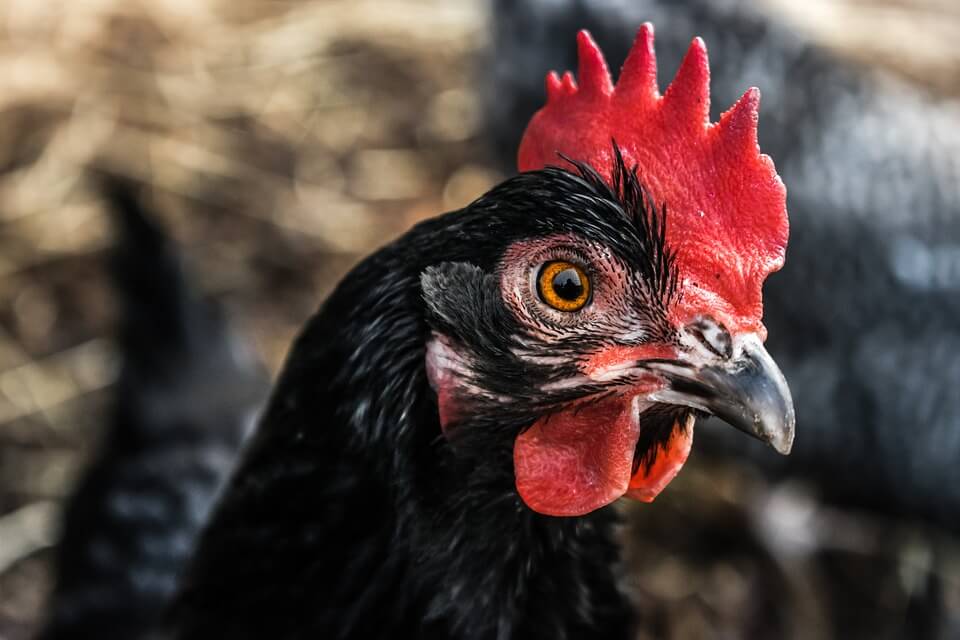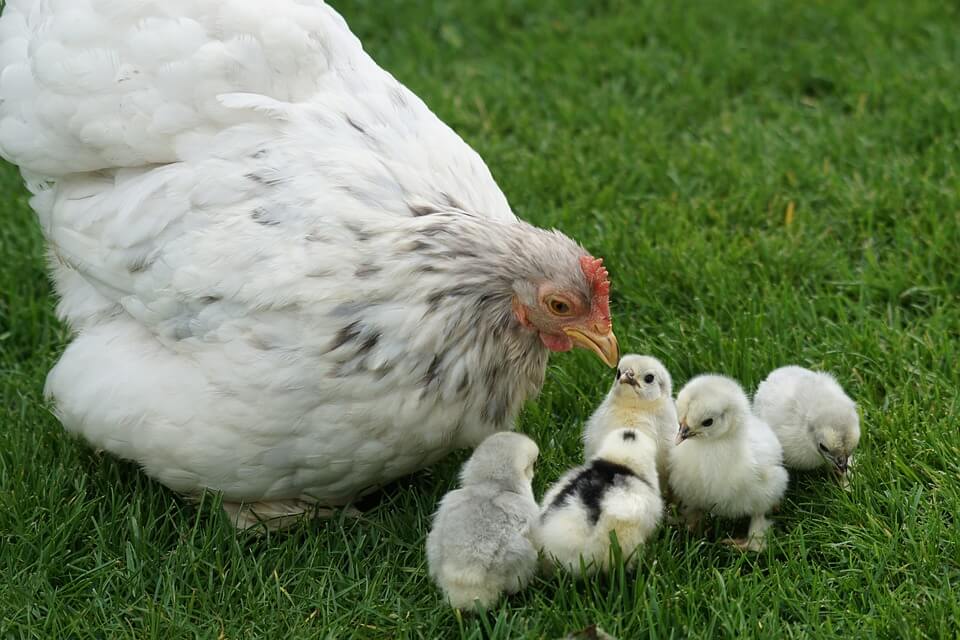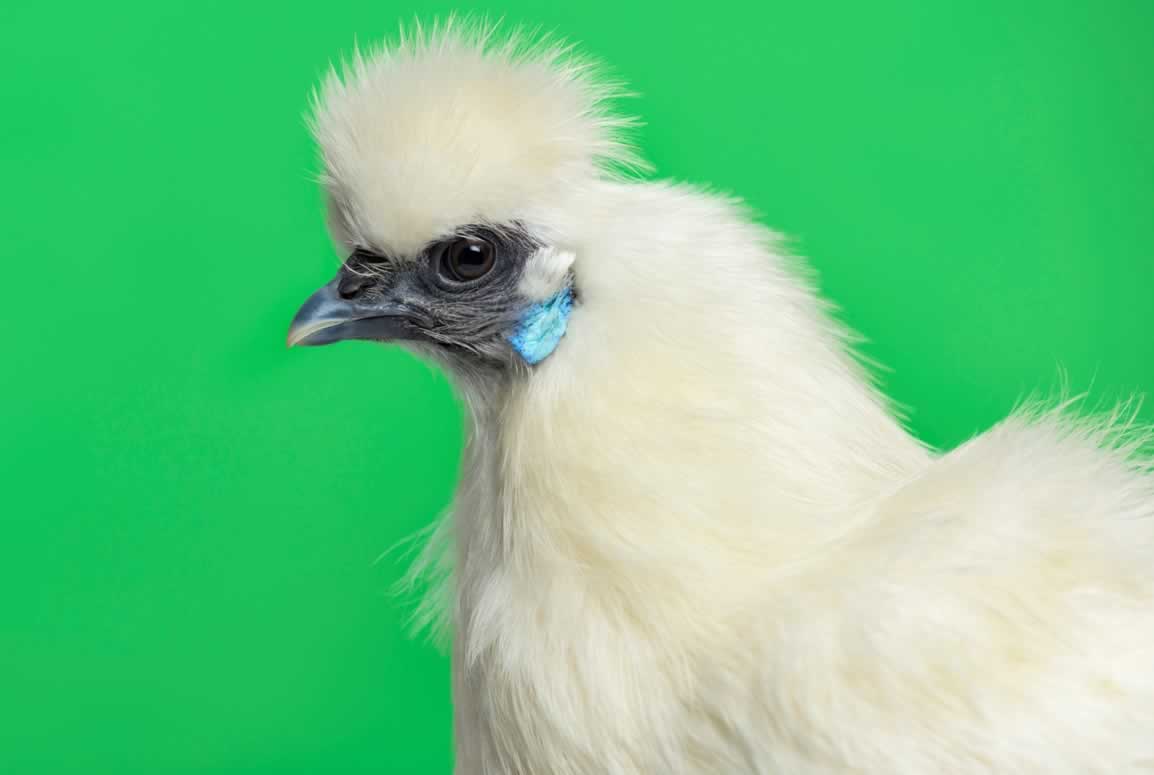Help Chickens Killed for Meat and Eggs
Chickens are arguably the most abused animals on the planet. Each year in the U.S. alone, approximately 9 billion of them are killed for their flesh and 305 million hens are used (and eventually killed) for their eggs. The vast majority of these animals spend their lives in total confinement—from the moment they hatch until the day they die. More chickens are raised and killed for food than all other land animals combined—yet not a single federal law protects them from abuse. From this page, you’ll be able to complete multiple PETA action alerts that can help these animals.
Get started now:

Chickens Used for Meat
Chickens raised for their flesh are typically confined to massive, windowless sheds that each hold tens of thousands of them. In these unnatural, overcrowded conditions, the birds are unable to find a spot in the pecking order, making it virtually impossible for them to establish a social structure. The frustrated animals often peck at one another relentlessly, causing injury and even death.
Such intensive confinement breeds filth and disease. Because the birds are forced to breathe in ammonia and particulate matter from feces and feathers daily, many suffer from serious health problems, including chronic respiratory illnesses and bacterial infections.
The birds receive low-grade doses of “growth-promoting” drugs, and genetic selection is used to make them grow faster and larger. On average, chickens today are four times bigger than they were in the 1950s, and many become crippled because their legs can’t support the weight of their bodies. Those who survive the horrific conditions inside broiler sheds are transported to the slaughterhouse.

Chickens Used for Eggs
In egg factories, the tips of female chicks’ beaks are cut off with a burning-hot blade within hours or days of birth. The birds receive no pain relief. They often have a hard time eating and drinking after their beaks are mutilated and can suffer from hunger and dehydration because their food and water intake is greatly reduced for several weeks after the procedure. Millions of male chicks, deemed worthless by the egg industry, are suffocated or thrown into high-speed grinders while they’re still alive.
Hens in the egg industry are packed into cramped wire “battery” cages, which hold up to 10 birds each. Even in the best-case scenario, a hen spends her life in a space about the size of a file drawer along with several other hens, unable even to lift a single wing. The birds are crammed so closely together that they’re forced to defecate on one another. The stench of ammonia and feces hangs heavy in the air, and disease runs rampant in the filthy, cramped sheds. Many birds die, and survivors are often forced to live with their dead and dying cagemates, whose bodies are sometimes left there to rot.
Shortly after their first birthday, the hens are considered “spent”—their egg production drops, and they become unprofitable to keep alive. They’re either gassed to death or shipped to slaughterhouses, where their fragile legs are forced into shackles and their throats are cut. By the time they’re sent to slaughter, roughly 30 percent have broken bones resulting from neglect, osteoporosis, and rough treatment.
The single greatest action that you can take to help chickens is to stop eating them and their eggs—and PETA can help. Browse hundreds of meat- and egg-free recipes on our site and learn more about the ways eggs can be damaging to your health.
If you want to help animals daily, there are tons of ways to get involved. Follow PETA on Facebook, Twitter, Instagram, and YouTube to stay up to date on our latest campaigns; subscribe to PETA News to get weekly updates on our efforts; and be sure to complete the PETA action alerts below—they all help chickens suffering in the food industry and can be completed with the quick click of a button.

—Take Action for Chickens—
There are multiple opportunities to help. As soon as you take one action below, another will automatically appear in its place.
Just enter your information once, then keep clicking the “Send Message” button until you’ve completed them all. Once you’ve finished, be sure to share this page with your friends, family members, and social media followers. Encourage them to join you in helping to stop the abuse of chickens in the meat and egg industries.